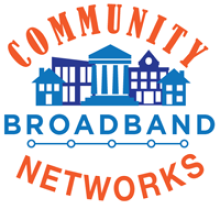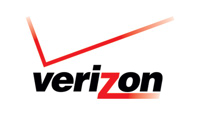By
on

It's a new year, but most of us are still stuck with the same old DSL and cable monopolies. Though many communities have built their own networks to create competition and numerous other benefits, nearly half of the 50 states have enacted legislation to make it harder for communities to build their own networks.
Fortunately, this practice has increasingly come under scrutiny. Unfortunately, we expect to see massive cable and telephone corporations use their unrivaled lobbying power to pass more laws in 2012 like the North Carolina law pushed by Time Warner Cable to essentially stop new community broadband networks.
The FCC's National Broadband Plan calls for all local governments to be free of state barriers (created by big cable and phone companies trying to limit competition). Recommendation 8.19: Congress should make clear that Tribal, state, regional and local governments can build broadband networks.
But modern day railroad barons like Time Warner Cable, AT&T, etc., have a stranglehold on a Congress that depends on their campaign contributions and a national capital built on the lobbying largesse of dominant industries that want to throttle any threats to their businesses. (Hat tip to the Rootstrikers that are trying to fix that mess.)
We occasionally put together a list of notable achievements of these few companies that dominate access to the Internet across the United States. The last one is available here.
 As you read this, remember that the FCC's National Broadband Plan largely places the future of Internet access in the hands of these corporations. On the few occasions the FCC tries to defend the public from their schemes to rip-off broadband subscribers, Republicans (joined by a number of Democrats) threaten to overrule what is supposed to be an independent agency to defend the corporations that just happen to be donors to their campaigns.
Back when most assumed AT&T would be able to push its horribly anti-competitive takeover with T-Mobile through an impotent federal government, a few stories exposed the tip of the iceberg of AT&T's astroturf efforts, as with this report from the Center for Public Integrity:
As you read this, remember that the FCC's National Broadband Plan largely places the future of Internet access in the hands of these corporations. On the few occasions the FCC tries to defend the public from their schemes to rip-off broadband subscribers, Republicans (joined by a number of Democrats) threaten to overrule what is supposed to be an independent agency to defend the corporations that just happen to be donors to their campaigns.
Back when most assumed AT&T would be able to push its horribly anti-competitive takeover with T-Mobile through an impotent federal government, a few stories exposed the tip of the iceberg of AT&T's astroturf efforts, as with this report from the Center for Public Integrity:

 Speaking of less competition, the recent deal between Verizon and cable companies is troubling. We already knew that FiOS was all but dead, but this deal truly puts a fork in it:
Speaking of less competition, the recent deal between Verizon and cable companies is troubling. We already knew that FiOS was all but dead, but this deal truly puts a fork in it:
 And in the continuing saga of Comcast's growing domination over the information people can access, Bloomberg TV is fighting Comcast's practice of discriminating against channels in which it has no ownership stake. Comcast has long strongly encouraged those who want to put television channels on its lineup to give Comcast a piece of the action, not unlike a mobster encouraging a small business to pay protection money. It wants to continue expanding its role as a gatekeeper to the Internet, particularly in the many areas where people have no real choice from other high speed providers.
And perhaps the best example of why we should not trust these massive corporations to run essential infrastructure is the revelation that AT&T defunded 9-11 call centers in Tennessee to gain a market advantage over competitors, a practice they were previously caught doing, leading to settlements out of court.
These corporations are not evil, they are following a sensible mandate to maximize their shareholder value. It is our government that is not sensible -- entrusting them with the future of Internet access without even bothering to enact the most basic regulations. Communities must continue to wise up and ensure they have the access they need to modern communications -- access that reponds to their needs, not those of distant shareholders.
And in the continuing saga of Comcast's growing domination over the information people can access, Bloomberg TV is fighting Comcast's practice of discriminating against channels in which it has no ownership stake. Comcast has long strongly encouraged those who want to put television channels on its lineup to give Comcast a piece of the action, not unlike a mobster encouraging a small business to pay protection money. It wants to continue expanding its role as a gatekeeper to the Internet, particularly in the many areas where people have no real choice from other high speed providers.
And perhaps the best example of why we should not trust these massive corporations to run essential infrastructure is the revelation that AT&T defunded 9-11 call centers in Tennessee to gain a market advantage over competitors, a practice they were previously caught doing, leading to settlements out of court.
These corporations are not evil, they are following a sensible mandate to maximize their shareholder value. It is our government that is not sensible -- entrusting them with the future of Internet access without even bothering to enact the most basic regulations. Communities must continue to wise up and ensure they have the access they need to modern communications -- access that reponds to their needs, not those of distant shareholders.
 As you read this, remember that the FCC's National Broadband Plan largely places the future of Internet access in the hands of these corporations. On the few occasions the FCC tries to defend the public from their schemes to rip-off broadband subscribers, Republicans (joined by a number of Democrats) threaten to overrule what is supposed to be an independent agency to defend the corporations that just happen to be donors to their campaigns.
Back when most assumed AT&T would be able to push its horribly anti-competitive takeover with T-Mobile through an impotent federal government, a few stories exposed the tip of the iceberg of AT&T's astroturf efforts, as with this report from the Center for Public Integrity:
As you read this, remember that the FCC's National Broadband Plan largely places the future of Internet access in the hands of these corporations. On the few occasions the FCC tries to defend the public from their schemes to rip-off broadband subscribers, Republicans (joined by a number of Democrats) threaten to overrule what is supposed to be an independent agency to defend the corporations that just happen to be donors to their campaigns.
Back when most assumed AT&T would be able to push its horribly anti-competitive takeover with T-Mobile through an impotent federal government, a few stories exposed the tip of the iceberg of AT&T's astroturf efforts, as with this report from the Center for Public Integrity:
“It is important that we, as Christians, never stop working on behalf of the underserved and forgotten,” the Rev. R. Henry Martin, director of the clinic, wrote to FCC Chairman Julius Genachowski in June. “It might seem like an out-of-place endorsement, but I am writing today in order to convey our support for the AT&T/T-Mobile merger.” ... Not included in Martin’s letter to the FCC was the fact that his organization had received a $50,000 donation from AT&T just five months earlier. Indeed the Shreveport-Bossier Mission is one of at least two-dozen charities that were recipients of AT&T’s largesse and have written in support of the T-Mobile buyout, which will cut the number of national wireless companies from four to three.When AT&T's wasn't able to buy enough influence with legitimate groups willing to sell out the interests of their members (who would pay more for their communications in a less competitive environment), it would simply create its own groups to push its interests:

Tallahassee Mayor John Marks brought an Atlanta nonprofit to the city as a partner in a $1.6-million federal-grant project, saying it would put high-speed Internet into the hands of poor people. What he didn't say, and now says he didn't know, was that the Alliance for Digital Equality (ADE), in its first three years of existence, was nearly 100-percent funded by AT&T and spent most of its money — four of every five dollars — to pay board members, consultants, lawyers and media companies to push the global communication giant's positions on Internet and wireless regulation. Nor did Marks disclose, initially, that ADE had paid him $86,000 over several years as a member of its board of advisers.We continue to see these massive companies abuse their market power to increase their prices, knowing that their lobbying arms will continue pushing legislation to stop communities from building their own networks. Time Warner Cable hiked its rates in North Carolina immediately after passing its legislation to stop communities from building networks. Mediacom raised its prices while it attempts to sabotage efforts in rural Minnesota to build networks in unserved areas. And invented new fees to rip off its subscribers while trying to disrupt a rural fiber-to-the-farm initiative that slightly overlapped some territory in which they have long refused to invest. Even as profits on cable broadband services approach Exxon proportions, Time Warner Cable has pushed for usage-based pricing to further overcharge subscribers, but mostly to strangle enormously popular competitors like Netflix. CenturyLink is not far behind, with usage caps prioritizing its own video content over competitors. Verizon Wireless tried to sneak a new fee past subscribers by announcing it just before Christmas but backed down after outraged consumers reacted. One has to wonder whether it would have backed down in a world where AT&T took over T-Mobile, resulting in 3 out of 4 wireless customers being with Verizon Wireless and AT&T. Four competitors isn't the robust competition envisioned by Adam Smith, but it still beats the duopoly dynamic that results from even less competition.
 Speaking of less competition, the recent deal between Verizon and cable companies is troubling. We already knew that FiOS was all but dead, but this deal truly puts a fork in it:
Speaking of less competition, the recent deal between Verizon and cable companies is troubling. We already knew that FiOS was all but dead, but this deal truly puts a fork in it:
I'll assume that neither cable operators or Verizon are going to let us see the deal fine print to confirm the Times guess, but the logic fits Verizon's strategy. Verizon already cherry picked the most valuable FTTH upgrade markets, and has shown total disinterest in further upgrades. This deal allows them to save money on FTTH upgrade costs, instead soaking up remaining customers with LTE -- which we noted was the plan some time ago. This deal is very bad news to the rural telcos without the cash for large-scale upgrades (CenturyLink, Frontier, Fairpoint, two of which Verizon sold aging DSL networks to), and for satellite broadband providers.The future of next-generation networks is now only community networks, cooperatives, and some small private networks. We've long argued that phone and cable companies have systematically overstated their coverage in mapping efforts as part of their effort to blunt any sensible public policy that would result in all Americans having a choice between fast, affordable, and reliable connections to the Internet. The New England disaster called FairPoint is back in the news for overstating the number of subscribers that have access to DSL. The company has not met the requirements it agreed to when purchasing Verizon's lines a few years ago.
 And in the continuing saga of Comcast's growing domination over the information people can access, Bloomberg TV is fighting Comcast's practice of discriminating against channels in which it has no ownership stake. Comcast has long strongly encouraged those who want to put television channels on its lineup to give Comcast a piece of the action, not unlike a mobster encouraging a small business to pay protection money. It wants to continue expanding its role as a gatekeeper to the Internet, particularly in the many areas where people have no real choice from other high speed providers.
And perhaps the best example of why we should not trust these massive corporations to run essential infrastructure is the revelation that AT&T defunded 9-11 call centers in Tennessee to gain a market advantage over competitors, a practice they were previously caught doing, leading to settlements out of court.
These corporations are not evil, they are following a sensible mandate to maximize their shareholder value. It is our government that is not sensible -- entrusting them with the future of Internet access without even bothering to enact the most basic regulations. Communities must continue to wise up and ensure they have the access they need to modern communications -- access that reponds to their needs, not those of distant shareholders.
And in the continuing saga of Comcast's growing domination over the information people can access, Bloomberg TV is fighting Comcast's practice of discriminating against channels in which it has no ownership stake. Comcast has long strongly encouraged those who want to put television channels on its lineup to give Comcast a piece of the action, not unlike a mobster encouraging a small business to pay protection money. It wants to continue expanding its role as a gatekeeper to the Internet, particularly in the many areas where people have no real choice from other high speed providers.
And perhaps the best example of why we should not trust these massive corporations to run essential infrastructure is the revelation that AT&T defunded 9-11 call centers in Tennessee to gain a market advantage over competitors, a practice they were previously caught doing, leading to settlements out of court.
These corporations are not evil, they are following a sensible mandate to maximize their shareholder value. It is our government that is not sensible -- entrusting them with the future of Internet access without even bothering to enact the most basic regulations. Communities must continue to wise up and ensure they have the access they need to modern communications -- access that reponds to their needs, not those of distant shareholders.Geoterm







